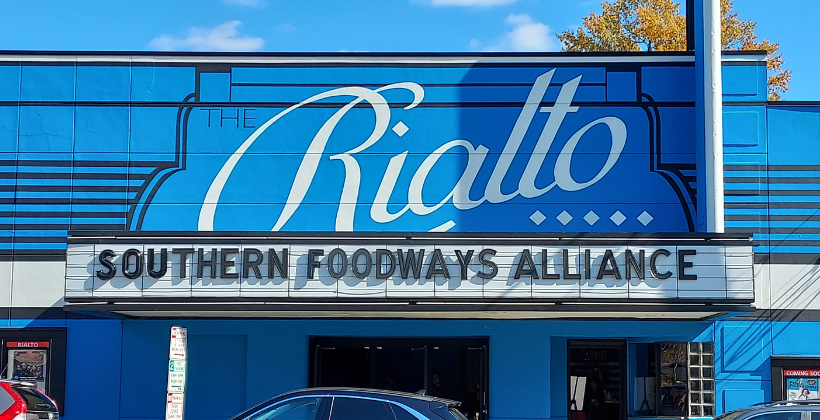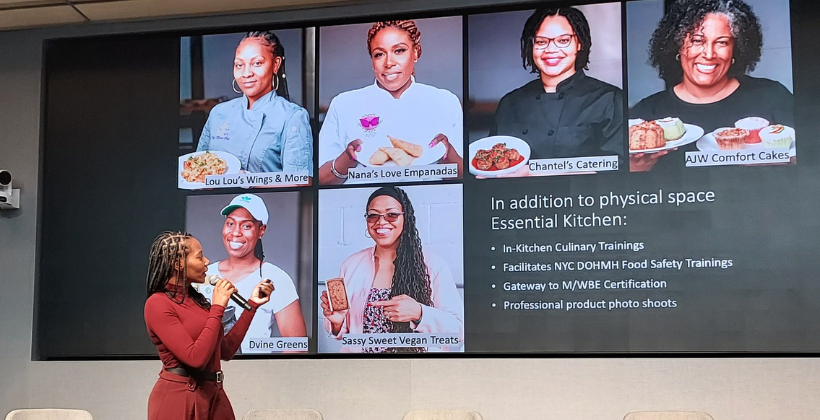
Food Funded Increases Access to Capital for Founders
I have my reservations about New York City, but that might be changing, thanks to food conferences like Food Funded.
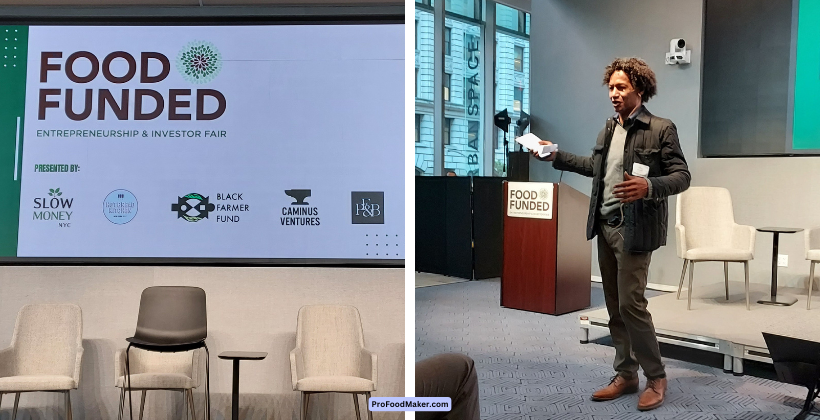
Personal hang ups aside, NYC is a major food hub, so there are many conferences and events to help food founders:
- network
- find customers
- connect with industry professionals
- and learn how to raise money for their businesses
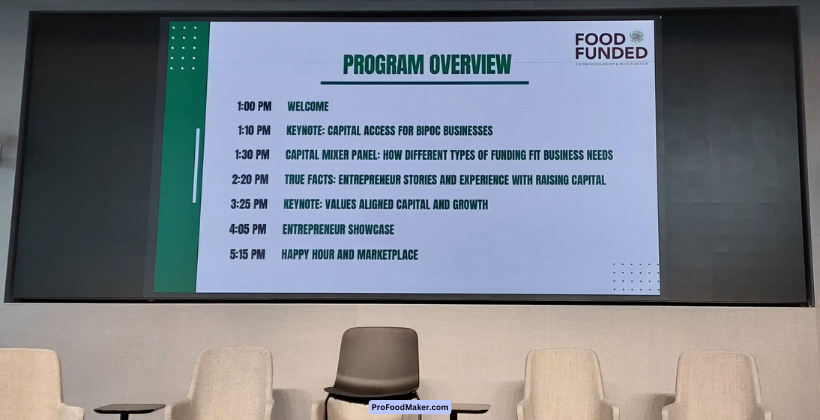
Food Funded East 2024 took place earlier this month at Civic Hall in New York City. It was emceed by LaRon Batchelor of Passport Food & Beverage and Caminus Ventures.
Let’s get into the takeaways from this entrepreneurship and investor fair.
Note: This post contains affiliate links. If you make a purchase, I’ll earn a commission at no extra charge to you. Read more on the Disclaimer page and thank you for your support.
Top 5 Takeaways from Food Funded East Entrepreneurship & Investor Fair 2024
1. Know your numbers.
Remember from my Culinary Creatives Conference recap, that you cannot make the right business decisions if you aren’t on top of your company’s financials?
Also, if you are looking to raise money, this is top of mind for investors.
A major concern I hear from founders is that they don’t have the money to hire a financial expert.
But over the past few years, I’ve met several fractional CFOs, which means you can hire a finance executive on a part-time schedule instead of full–time.
2. Identify the right type of funding for you and your business.
It was a relief to hear some of the panelists state that venture capital is NOT right for their businesses.
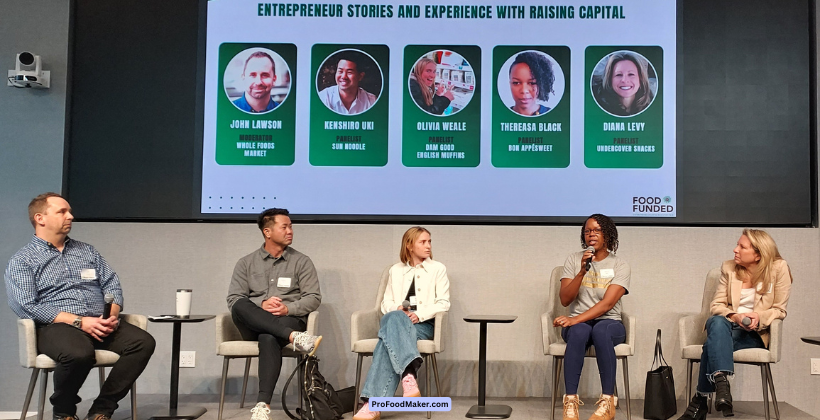
Although VC can work for food businesses, I don’t think it’s the right type of funding for the majority.
VC firms are most interested in ‘rapid growth,’ which means extremely fast growth at all costs.
However, this doesn’t mean that other funding types are easier to get.
Thereasa Black of Bon AppéSweet, details her rollercoaster experience with other types of funding, including angel investments and pitch competitions.
Despite the many issues she faced, she’s raised more than $750K for her company.
Related post: Why VC might not be right for your food business or restaurant
3. Decide on your needs outside of capital, when raising funds.
Investors can (and should) do more than provide money.
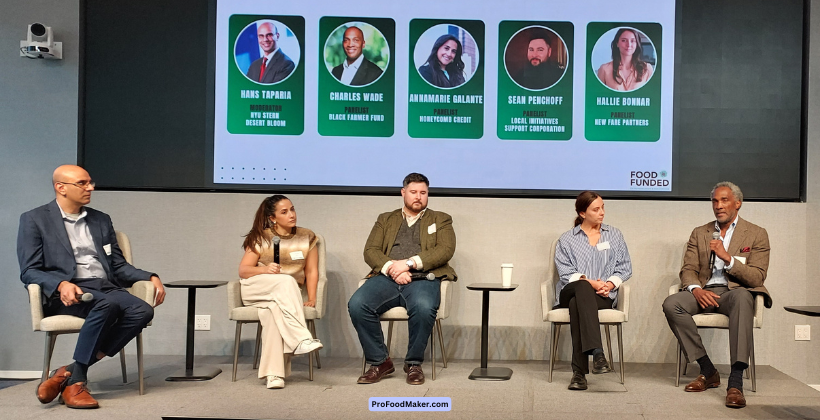
In Don’t Make These 5 Mistakes When Applying for Venture Capital Funding, I outline the many ways that an investor can support and elevate you and your team.
Charles Wade talks about the technical assistance that Black Farmer Fund provides to farmers. This allows the farmers to get to a place where either Black Farmer Fund or another organization can invest in them.
4. Get your certifications, if applicable.
Certifications such as Minority and Women-Owned Business Enterprise (MWBE) and Women-Owned Small Business (WOSB) open additional opportunities for your business.
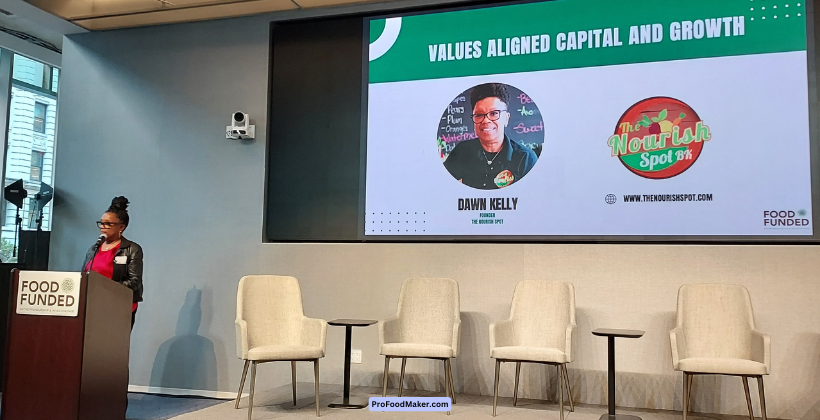
We learned from Keynote Speaker Dawn Kelly of The Nourish Spot that some organizations, like the federal government, are required to work with a certain number of businesses that have these certifications, so this gives you an advantage if you have one.
5. We have the opportunity to repair and build better food systems.
And it starts with your community.
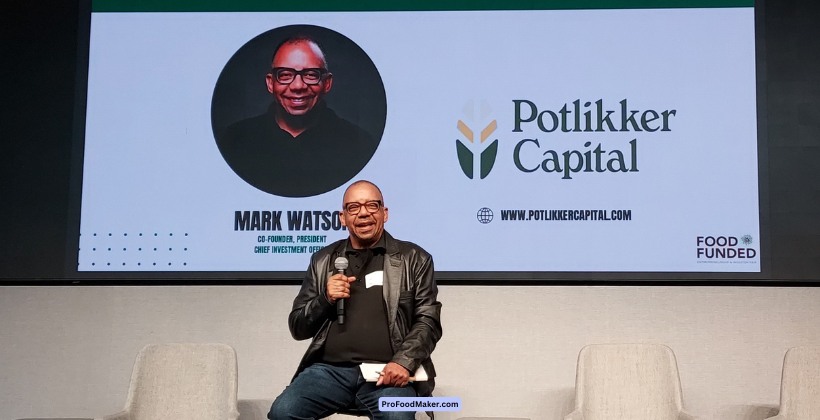
Keynote Speaker Mark Watson of Potlikker Capital, described how one of the main problems with our current food systems is that we’ve centered investors.
And from the film, Farming While Black, we learned that our food systems are built on top of stolen land and labor.
Only a few weeks after Election Day in the U.S., Mark urges us not to give up.
Instead we can rebuild food systems by developing resilient communities.
Black farmers & food systems: Farming While Black Film Spotlights New Generation of Farmers
Food Funded East 2024 Entrepreneurship Showcase
A total of 7 entrepreneurs pitched their companies to a panel who provided feedback.
Three additional companies gave lightning pitches.
Founders who pitched:
- Ami Spiwak of Boogie Down Grind Cafe
- Earnest Flowers of Earnest Foods natural & organic grocery store
- Kim Calichio of The Connected Chef affordable grocery nonprofit
- Sean Ro of LUNAR hard seltzer
- Diana Rose of Essential Kitchen shared commercial kitchen & incubator
- Chrissy Traore of See & Be Kitchen Corp
- Karl Williams of Uncle Waithley’s Beverage Company
- Juan Giraldo of Waku Tea
- Donna Davis of Veggie Grub vegan catering company
- Karrie Laughton of Roc Paper Straws
The feedback panel:
- Jamila O’Gilvie of The Beryl Company
- Kobla Asamoah of Caminus Ventures
- Michael Robinov of Farm To People
Note: To protect the information of the founders and their companies, I will keep this section high level.
Summarized questions/feedback from the panel:
If you plan on raising capital for your food business, either through crowdfunding, venture capital, pitch competitions, or something else, use these questions as a starting guide on how to prepare for the process.
Raising capital
- How much money are you trying to raise?
- Have you raised [money] recently? If so, how much?
- What’s the breakdown of the money you are looking to raise?
- Another way to phrase this is, “Specifically, how will you use the money that you will raise?”
Expansion
- Expansion is a challenge. How are you navigating this? Are you trying to unlock new states, new retailers, etc?
- Can your current co-packer support you or do you need to find another one in order to expand?
- How will [expanding, franchising, partnering with a delivery service] affect your already tight/low margins?
About your company, yourself & your team
- Tell me more about your background and the team.
- What sets you apart from your competitors?
What I Ate
Sadly, I wasn’t able to sample everything, but here’s what I had:
Uncle Waithley’s Vincy Brew Caribbean Sorrel & a spread from Farm To People.
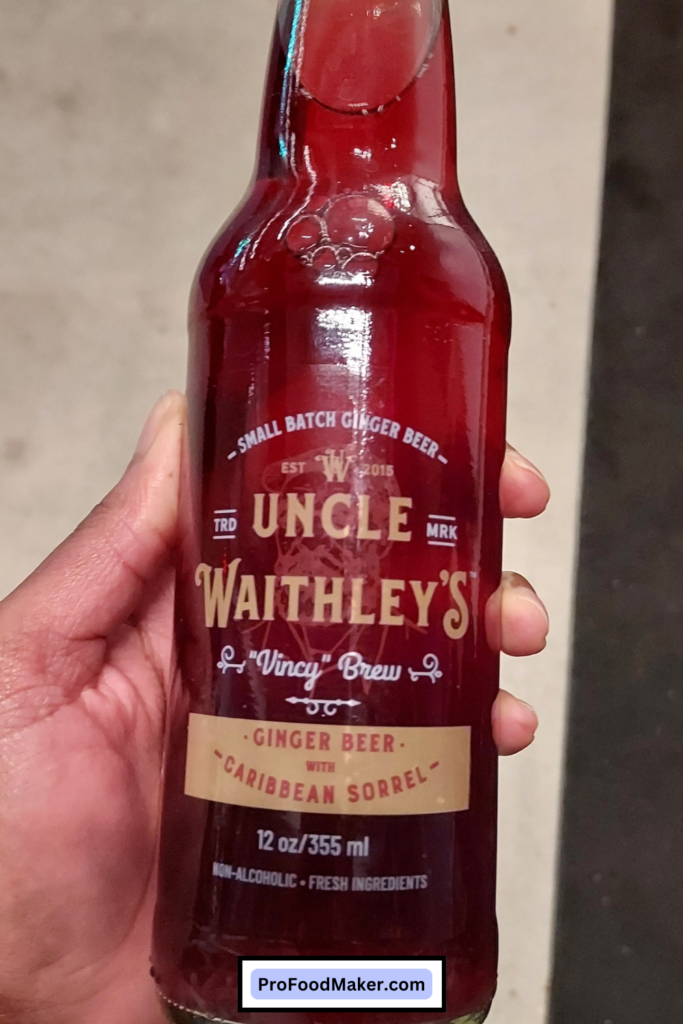

You can find Uncle Waithley’s ginger beer in Whole Foods stores in the northeast and on Amazon.
I bought mine from a Black owned grocery store in Raleigh, NC called The Black Farmer’s Hub.
Where can I find Uncle Waithley’s near me?
Use their store locator to find the ginger beer near you.
More food conferences & events
Women in Agriculture Conference: Goat Farming, Buying Land, & More
